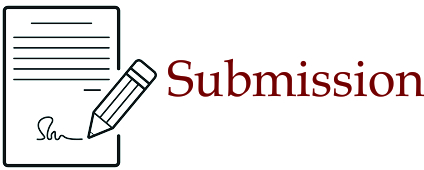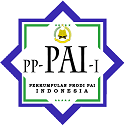Model Pendidikan Islam Progresif
Abstract
Keywords
Full Text:
72-86References
Abd, A. A. 2020. Evaluation of Holy Quran & Islamic Education Curriculum of Second Intermediate Stage from Perspectives of Teachers & Supervisors of the Material: A Field Study conducted in the Directorates-General of Education in Baghdad Governorate. Journal of College of Education for Women, 31(1), 83–99. https://doi.org/10.36231/coedw/vol31no1.6
Abdullah, A., Masruri, S., & Bashori, K. 2019. Islamic Education and Human Construction in The Quran. International Journal of Education and Learning, 1(1), 27–32. https://doi.org/10.31763/ijele.v1i1.21
Abdullah, M. 2019. School Culture to Serve Performance of Madrasah in Indonesia. QIJIS (Qudus International Journal of Islamic Studies), 7(1), 71. https://doi.org/10.21043/qijis.v7i1.4809
Abdullah, M. A. 2017. Islamic studies in higher education in Indonesia: Challenges, impact and prospects for the world community. Al-Jami’ah, 55(2), 391–426. https://doi.org/10.14421/ajis.2017.552.391-426
Ahmadi, A. 2017. Descriptive-Analytical Studies of Literacy Movement in Indonesia, 2003-2017. International Journal of Humanities and Cultural Studies, 4(3), 16–24. https://www.ijhcs.com/index.php/ijhcs/article/view/3141
Akbar, R. N., Sugiyanto, S., & Doewes, M. 2020. The Physical Education in Darul Ulum Islamic Boarding School. AESA: Asian Exercise and Sport Science Journal, 4(1), 40–44. https://doi.org/10.30472/aesj.v4i1.106
Al-Abrasyi, M. A. 1969. Al-Tarbiyah al-Islamiyah wa Falsafatuha. Kairo: Isa al-Babi al-Halabi.
Al-Kailani, M. I. 1988. Falsafat al-Tarbiyah al- Islamiyah. Mekah: Maktabah Hadi.
Al-Nahlawi, A. 1996. Ushul al-Tarbiyah al- Islamiyah fi al-Bait wa al-Madrasah wa al-Mujtama’. Damaskus: Dar al-Fikr.
Alayoubi, M. M., Al Shobaki, M. J., & Abu-Naser, S. S. 2020. Strategic Leadership Practices and their Relationship to Improving the Quality of Educational Service in Palestinian Universities. International Journal of Business Marketing and Management, 5(3), 11–26. www.ijbmm.com
Amir MZ, Z., Risnawati, R., & Muhandaz, R. 2019. Konsep Sunnah dalam Pembelajaran Sains. Journal of Natural Science and Integration, 1(2), 185–194. https://doi.org/10.24014/jnsi.v1i2.6597
Anam, N., & Fikroni, M. R. 2020. Rabbani Education: Basic Concepts, Design and Implications of Rabbani Education Learning. Tribakti: Jurnal Pemikiran Keislaman, 31(1), 67–82.
https://ejournal.iai-tribakti.ac.id/index.php/tribakti/article/view/975/600
Ashraf, A. 1985. New Horizons in Muslim Education. Cambridge: Antony Rowe Ltd.
Azis, A. 2016. A Step Ahead Education (Human Potential Development Oriented). International Seminar on Education, 36–44. http://seminar.umpo.ac.id/index.php/ISE2016/article/view/415
Azman, Z., & Helandri, J. 2020. Islamic Education for Millennial Era Generations. Proceeding ISID, 1, 296–317. https://doi.org/10.37092/PROSIDINGISID.V1I1.197
Azra, A. 1999. Pendidikan Islam Tradisi dan Modernisasi Menuju Milenium Baru. Jakarta: PT. Logos Wacana Ilmu.
Azra, A. 2002. Paradigma Baru Pendidikan Nasional Rekonstruksi dan Demokratisasi. Jakarta: Kompas.
Bacik, G. 2020. The Islamic Idea of Nature in Contemporary Turkey. In Islam and Muslim Resistance to Modernity in Turkey. Cham: Palgrave Macmillan.
Bashori, B., Prasetyo, M. A. M., & Susanto, E. 2020. Change Management Transfromation in Islamic Education of Indonesia. Social Work and Education, 7(1), 72–85. https://doi.org/10.25128/2520-6230.20.1.7.
Bensaid, B., & Machouche, S. 2020. Education Piety: Special Reference to Abu Hamid al-Ghazali and Abdul Rahman Ibnu Khaldun. Global Perspectives on Teaching and Learning Paths in Islamic Education, 34–59. https://doi.org/10.4018/978-1-5225-8528-2.ch003
Buto, Z. A., & Hafifuddin, H. 2019. Swot Analysis of Islamic Education Facing the Era of Globalization. International Journal of Innovation, Creativity and Change, 9(4), 305–312. https://www.ijicc.net/images/vol9iss4/9421_Buto_2019_E1_R1.pdf
Das, S. W. H., Halik, A., & Amaluddin, A. 2016. Paradigm of Islamic Education in the Future: The Integration of Islamic Boarding School and Favorite School. Information Management and Business Review, 8(4), 24–32. https://doi.org/10.22610/imbr.v8i4.1390
Fadjar, A. M. & Ghofir, A. 1981. Pendidikan Islam di Perguruan Tinggi. Surabaya: Lembaga Penerbitan Universitas Brawijaya Malang.
Fadjar, A. M. 1983. Kata Pengantar dan Editor “Islam dan Dinamika Kebebasan Akademi.” In A. O. Altawaijri (Ed.), Academic Freedom Islam and The West: A study of the Philosophical Foundations of Academik Freedom in Islam, terj. Mufid, Islam dan Kebebasan Akademi. Malang: Citra Mentari Group.
Fadjar, A. M. 1999. Sambutan pada Acara Pembukaan Madrasah Terpadu YASUCI Cijantung 14 Mei 1999. In Himpunan Pidato Menteri Agama RI. Tahun 1999. Biro Hukum dan Humas Sekretaris Jenderal Depag RI.
Fadjar, A. M. 2006. Pengembangan Pendidikan Islam yang Menjanjikan Masa Depan. In H. Esa, M. I., & Syaifuddin (Ed.), Kumpulan Orasi Ilmiah Pengukuhan Guru Besar UIN Malang Periode 1989-2006. Malang: UIN Malang Press.
Fahriana, A. S., & Huda, M. 2019. Application of Analysis of Strengths, Weaknesses, Opportunities, and Threats in Islamic Education Institutions. ISTAWA: Jurnal Pendidikan Islam (IJPI), 4(1), 52–64. https://doi.org/10.24269/ijpi.v4i1.1670
Fajariah, M., & Suryo, D. 2020. Teacher’s Education for Character Education. Proceedings of the 2nd International Conference on Social Science and Character Educations (ICoSSCE 2019), 311–320. https://doi.org/10.2991/assehr.k.200130.063
Flick, U. 2018. An Introduction to Qualitative Research (6th ed.). SAGE Publications Ltd.
Gingras, Y. 2018. Religion and Science. Issues in Science and Technology, 34(2), 17–18. http://www.jstor.org/stable/44577397
Gunawan, I., Ahmadi, F., & Dukuhwaluh, R. 2020. Implementation of Character Education for Elementary Students. Journal of Primary Education, 9(2), 168–175. https://doi.org/10.15294/jpe.v9i2.36646
Hamka. 1962. Lembaga Hidup. Jakarta: Djajamurni.
Ibrahim, M. A. 2019. Earth’s Formation from The Quranic Perspectives Based on Surah Al-Ra’d Verse 3. IJASOS- International E-Journal of Advances in Social Sciences, 5(15), 1321–1326. https://doi.org/10.18769/ijasos.592099
Idris, M., Willya, E., Wekke, I. S., & Mokodenseho, S. 2020. Peace Resolution in Education and Application on Information and Communication Technologhy. International Journal of Advanced Science and Technology, 29(6), 3349–3358. http://sersc.org/journals/index.php/IJAST/article/view/14076
Jackson, S. L. 2015. Research Methods and Statistics: A Critical Thinking Approach (5th ed.). Cengage Learning.
Kalaian, S. A., Kasim, R. M., & Kasim, N. R. 2019. Descriptive and Predictive Analytical Methods for Big Data. In Web Services (pp. 314–331). IGI Global. https://doi.org/10.4018/978-1-5225-7501-6.ch018
Kotsonis, A. 2020. What can We Learn from Plato about Intellectual Character Education? Educational Philosophy and Theory, 52(3), 251–260. https://doi.org/10.1080/00131857.2019.1631157
Lafmejani, A. Q. 2020. The Human in the perspective of Freud and its comparison with the Shiite Islam perspective. Technium Social Sciences Journal, 4(1), 84–93. https://doi.org/10.47577/tssj.v4i1.65
Lisaldi, J. & Lisa, E. N. 2019. Islamic educational thoughts of ibn al-Qayyim al-Jauziyah and Syed Muhammad Naquib al-Attas as a Science and Islamic integration method. In N. A. Rahman, S. A. Said, F. N. M. Zabidi, & A. N. A. Rahman (Eds.), 10Th International Symposium on Islam, Civilization and Science (pp. 35–43). Universiti Kebangsaan Malaysia.
Lovat, T. 2020. Islamic education today and yesterday: Principal themes and their potential to enlighten Western education. Global Perspectives on Teaching and Learning Paths in Islamic Education, 1–19. https://doi.org/10.4018/978-1-5225-8528-2.ch001
Lyons, J. 2012. Islam and Science. In Islam Through Western Eyes: From the Crusades to the War on Terrorism. New York: Columbia University Press.
Mahfud, C. 2020. Understanding Political Reform and Islamic Education Position in Indonesia. AL-MURABBI: Jurnal Studi Kependidikan Dan Keislaman, 6(2), 130–136. http://ejournal.kopertais4.or.id/mataraman/index.php/murabbi/article/view/3768
Mahmood, S. K. 2019. Factors Affecting Learning Islamic Science in Developing Countries. International Journal of Rural Development, Environment and Health Research, 3(5), 168–176. https://doi.org/10.22161/ijreh.3.5.3
Manan, A. 2020. Islamic Educational Values in Life-Cycle Rituals: An Ethnographic Study in Kluet Timur Community, Aceh, Indonesia. In Global Perspectives on Teaching and Learning Paths in Islamic Education (pp. 118–134). https://doi.org/10.4018/978-1-5225-8528-2.ch007
Mann, T. 2015. The Oxford Guide to Library Research (4th ed.). Oxford University Press.
Mansir, F., & Karim, A. 2020. Islamic Education Learning Approaches in Shaping Students’ Emotional Intelligence in the Digital Age. Hayula: Indonesian Journal of Multidisciplinary Islamic Studies, 4(1), 67–86. https://doi.org/10.21009/004.01.04
Marimba, A. D. 1989. Pengantar Filsafat Pendidikan Islam. Bandung: Al-Ma’arif.
Merriam, S. B., & Tisdell, E. J. 2016. Qualitative Research: A Guide to Design and Implementation (4th ed.). Jossey-Bass, Inc.
Mokodenseho, S., & Wekke, I. S. 2017. Toleransi Beragama dan Pembelajaran Agama Islam: Harmoni Masyarakat Minoritas Muslim Manado. Proceeding: Seminar Nasional & Temu Ilmiah Jaringan Peneliti (2017), 67–75. http://ejournal.iaida.ac.id/index.php/proceeding/article/view/131
Nawi, M. A. M., Jamsari, E. A., Hamzah, M. I., Sulaiman, A., & Umar, A. 2012. The Impact of Globalization on Current Islamic Education. Australian Journal of Basic and Applied Sciences, 6(8), 74–78. www.alexa.com
Okros, A. 2020. Education and Learning. In Harnessing the Potential of Digital Post-Millennials in the Future Workplace (pp. 53–72). https://doi.org/10.1007/978-3-030-25726-2_3
Paulussen, C., & Scheinin, M. 2019. Human Dignity and Human Security in Times of Terrorism. In Human Dignity and Human Security in Times of Terrorism. T.M.C. Asser Press. https://doi.org/10.1007/978-94-6265-355-9
Rabilla, A., & Nurhayati, N. 2020. Strategies of Islamic Education in The Perspective of the Qur’an. Proceeding International Seminar of Islamic Studies, 1(1), 641–646. http://jurnal.umsu.ac.id/index.php/insis/article/view/4200
Setiawan, W. 2020. The Spiritual Education Toward Insan Kamil in The Education of Modern Humankind. International Seminar on Education, 478–483. http://seminar.umpo.ac.id/index.php/ISE2016/article/view/498
Sheikh, S. U., & Ali, M. A. 2019. Al-Ghazali’s Aims and Objectives of Islamic Education. Journal of Education and Educational Development, 6(1), 111–125. https://eric.ed.gov/?id=EJ1216762
Sugiana, A. 2019. Islamic Education Perspective Imam al-Ghazali and Its Relevance with Education in Indonesia. Jurnal Tarbiyah, 26(1), 81–94. https://doi.org/10.30829/tar.v26i1.400
Suminto, S. 2019. Psychological Principle and Its Implications in Islamic Education Hasan Langgulung’s Perspective. AL-HAYAT: Journal of Islamic Education, 3(2), 224–236. https://doi.org/10.35723/ajie.v3i2.79
Suri, E. M., Marmai, U. A. O., & Silalahi, J. 2019. Curriculum Development in West Sumatra Context of The Historical Perspectives and The Implementation. Proceedings of the 1st International Conference on Innovation in Education (ICoIE 2018), 137–140. https://doi.org/10.2991/icoie-18.2019.32
Syukri, M. 2019. Modernization of Indonesian Islamic Education Critical Study on Madrasah Human Resources Development. Hijri, 8(1), 1–24. http://jurnal.uinsu.ac.id/index.php/hijri/article/view/5811
Ulgen, O. 2020. Human Dignity in an Age of Autonomous Weapons: Are We in Danger of Losing an ‘Elementary Consideration of Humanity’? Baltic Yearbook of International Law Online, 17(1), 167–196. https://doi.org/10.1163/22115897_01701_009
Watts, J., & Mahfood, S. 2014. Assessing Library Research Consultations: A Mixed-Method Approach. In S. Durso, S. Hiller, M. Kyrillidou, & A. Pappalardo (Eds.), Proceedings of the 2014 Library Assessment Conference: Building Effective, Sustainable, Practical Assessment (pp. 583–589). Association of Research Libraries.
Wekke, I. S., & Mokodenseho, S. 2017. Religious teaching and learning in minority Muslim of Manado Indonesia. 2nd International Conference on Education, Science, and Technology (ICEST 2017), 187–189. https://doi.org/10.2991/icest-17.2017.62
Wekke, I. S., & Mokodenseho, S. 2018. Tolerance, Understanding, and Religious Teaching and Learning in Minority Muslim of Manado North Sulawesi. https://doi.org/10.31227/osf.io/hjzmc
Wekke, I. S., Mokodenseho, S., & Rahman, A. F. 2018. Values of Religious Tolerance in Islamic Learning Material of Muslim Minority State High School. https://doi.org/10.31227/osf.io/tfbkc
Yahya, W. Bin, & Rahmat, M. 2019. The Characteristics of Muttaqin in the Qur`an and its Implication on the Aim of Islamic Education. Proceedings of the Social and Humaniora Research Symposium (SoRes 2018), 296–299. https://doi.org/10.2991/sores-18.2019.69
Zahrin, S. N. A., Hasan, S. A., & Samsudin, M. Z. 2019. Human Capital Transformation As Mediator Between Love for Knowledge and Excellent Muslim. Asean Journal of Teaching and Learning in Higher Education (AJTLHE), 11(2), 1–16. https://ejournal.ukm.my/ajtlhe/article/view/37039
DOI: https://doi.org/10.18860/jpai.v7i2.11682
Refbacks
- There are currently no refbacks.
Copyright (c) 2021 Muh Idris, Sabil Mokodenseho

This work is licensed under a Creative Commons Attribution-ShareAlike 4.0 International License.
...............................................................................................................................................................
Editorial Office:
Fakultas Ilmu Tarbiyah dan Keguruan
Universitas Islam Negeri Maulana Malik Ibrahim Malang
Jalan Gajayana 50 Malang, Jawa Timur, Indonesia 65144
Phone (0341) 552398, Faximile (0341) 552398
E-mail: jpai@uin-malang.ac.id
J-PAI: Jurnal Pendidikan Agama Islam is licensed under a Creative Commons Attribution-ShareAlike 4.0.
...............................................................................................................................................................
Indexed by:



















